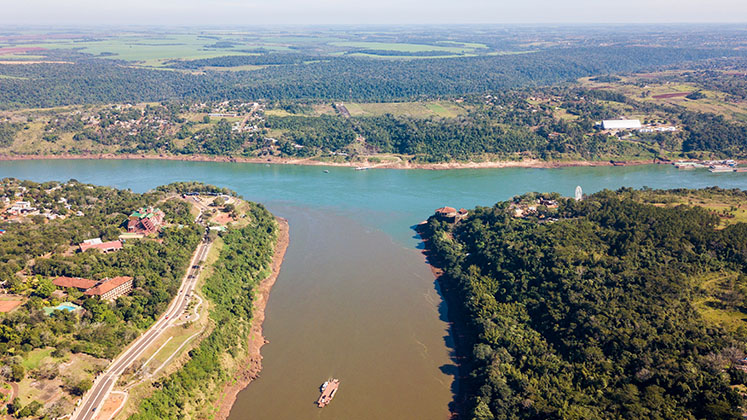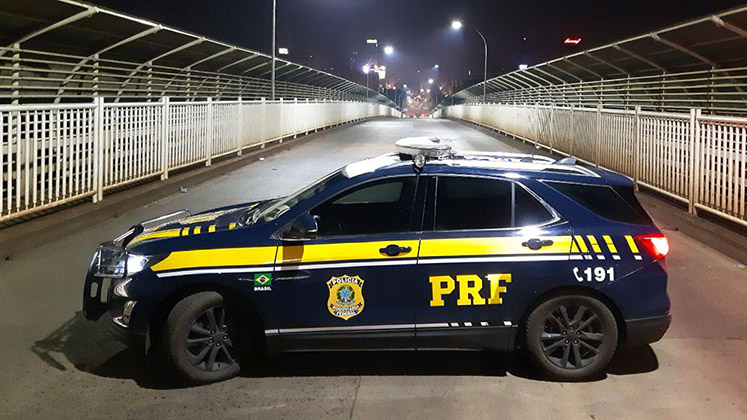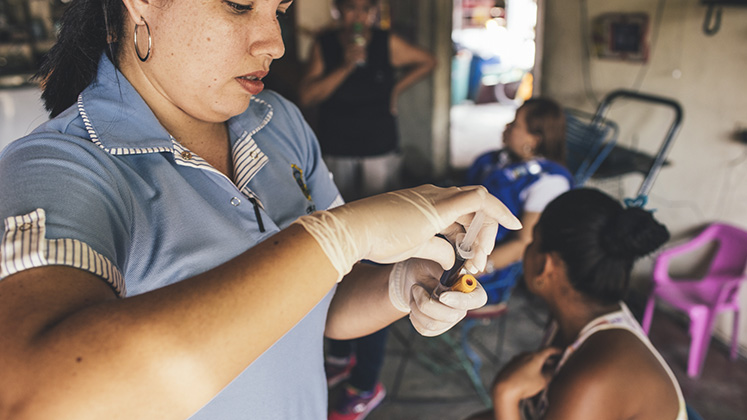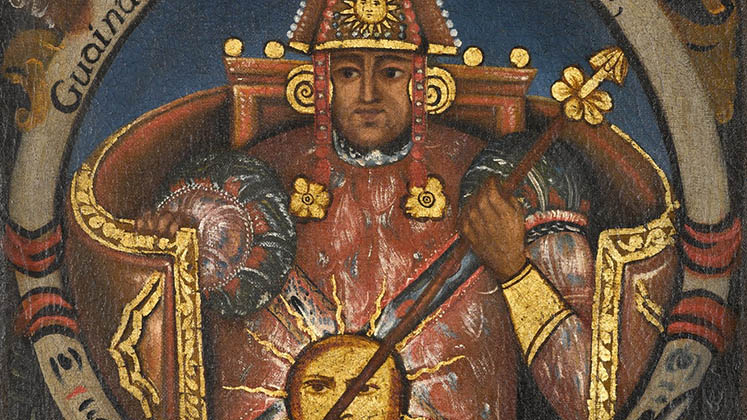 The recent closure of borders at the Triple Frontier, particularly between Paraguay and Brazil, has impacted heavily on local commerce and employment. But despite increased surveillance, militarisation, and mobility restrictions, trafficking of drugs and contraband is booming. Partial legalisation of marijuana and a turn towards tourism represent more realistic alternatives in the long term, writes Isabelle Somma de Castro (Universidade de São Paulo) following on from her participation in the LSE LACC, PUC-SP, UNICAMP Researcher Links Workshop on Governance, Crime, and International Security.
The recent closure of borders at the Triple Frontier, particularly between Paraguay and Brazil, has impacted heavily on local commerce and employment. But despite increased surveillance, militarisation, and mobility restrictions, trafficking of drugs and contraband is booming. Partial legalisation of marijuana and a turn towards tourism represent more realistic alternatives in the long term, writes Isabelle Somma de Castro (Universidade de São Paulo) following on from her participation in the LSE LACC, PUC-SP, UNICAMP Researcher Links Workshop on Governance, Crime, and International Security.
The Triple Frontier between Argentina, Brazil, and Paraguay is only ever in the news for one of two reasons: its amazing landscape of cascading waterfalls or the varied impacts of any number of illicit activities. With the rapid spread of coronavirus in Brazil, most of the hotels and tourist attractions are now closed. Criminal activities, however, have been on the rise.

COVID-19 and the economy of the Triple Frontier
The Ponte da Amizade (Friendship Bridge) that spans the Paraná river between the cities of Foz do Iguaçu, in Brazil, and Ciudad del Este, in Paraguay, is one of the busiest bridges in South America. Before the pandemic, 30,000 vehicles and more than 80,000 people crossed it every single day.
Ciudad del Este is a free trade zone, where tourists from Brazil purchase tax-free goods like perfumes, mobile phones, and clothes. Shop owners and salespeople from Foz do Iguaçu also cross the bridge daily to work amidst the commercial throng of the Paraguayan town. Some are Chinese and Lebanese citizens who live in Foz do Iguaçu but own businesses on the other side of the bridge. Others across the water in Ciudad del Este, meanwhile, make a living by buying fresh vegetables and other essential items on the Brazilian side and reselling them back home in Paraguay. All of this activity has been threatened by the growing COVID-19 crisis.
Argentina became the first country to close a bridge at the Triple Frontier on 13 March, but traffic between Puerto Iguaçu (Argentina) and Foz do Iguaçu (Brazil) is far less intense than between Foz and Ciudad del Este (Paraguay). Brazil subsequently closed its borders on 19 March, including the dry crossings at San Pedro Caballero and Ponta Porã. On 24 March, the Paraguayan government did the same. These regulations also restricted shipping, with fishing from boats in shared waters being prohibited. Lorries continued to be allowed to cross the borders, but only during tight time windows, with just a small minority of vehicles being rigorously inspected.
These measures were a huge blow to trade and business in Brazil and Paraguay especially. In Foz do Iguaçu, 6,500 workers lost their jobs. In Ciudad del Este, the numbers were even higher, as many shops have closed down for good. Paraguayan workers made redundant in larger Brazilian cities, meanwhile, had no choice but to leave the country and camp for days on the bridge itself in order to re-enter Paraguay. Some were infected in these camps or while quarantining in small hotels in Ciudad del Este.
Law enforcement agencies on both sides of the river are working to implement the strict new measures. A number of Brazilian fishermen were jailed in June by Paraguayan forces on the Paraná river. The police also detained groups of Brazilian and Lebanese citizens heading for Paraguay by boat in spite of the border closure. Many are believed to be shop owners trying to reach their businesses just across the river.
Illicit trade and securitisation of the border
But the Friendship Bridge and the waters below are also trafficking routes for a lot of the contraband and drugs that enter Brazil.
The Paraguayan cigarette industry, for instance, produces 71 billion units, but only two billion of those remain in the country. Despite Brazilian legislation prohibiting importation of cigarettes, Paraguayan products account for 57 per cent of the Brazilian market. Paraguay is also one of the world’s top marijuana producers, as well as offering routes into Brazil for Andean cocaine.
In December 2019, the Brazilian government invested in a new facial recognition system for the bridge and an information-gathering centre within the binational territory of the Itaipu Hydroelectric Plant. The inspiration for this initiative came from US “fusion centres” established after 9/11 to integrate information and expertise from various law enforcement agencies into a single hub.
Though it was never revealed how much was spent on the system or the centre, we do know that the Brazilian government had earlier spent US$ 28 million on two unmanned aerial vehicles − essentially military drones. A few years down the line, the two drones have been abandoned because the Federal Police found that their maintenance costs were too high and their capabilities were unsuitable for the Triple Frontier area.
It is anything but uncommon for Brazilian taxpayers’ money to be squandered in this way, but did these particular security measures perhaps help to reduce illicit activity at the Triple Frontier? The answer appears to be no.

The COVID-19 trafficking boom at the Triple Frontier
On the contrary, despite increased surveillance, militarisation, and mobility restrictions during the COVID-19 crisis, traffickers seem to be busier than ever.
In fact, Brazilian police have seized record hauls of marijuana coming from Paraguay in recent months. A single operation in August found 33 tons of marijuana stashed in a double-trailer truck. From January to July 2020, 17 tons were also seized on the area’s rivers, which is a ten per cent rise on the same period of 2019. Overall, 180 tons of marijuana were confiscated between January and August, which represents an increase of 150 per cent on the same period last year.
One of the main reasons for the rising number of seizures is a boost in supply coming from Paraguay, which is driven by huge demand in Brazil. The two countries have a shared programme to eradicate marijuana farms, which carries out as many as six operations per year. In 2020, however, there has been just one, which destroyed 658 tons of market-ready product and 127 hectares of crops. In terms of contraband, the police also seized 50 per cent more cigarettes in July 2020 (with the borders closed) than in July 2019 (when borders were open).
Most trafficking of drugs and contraband happens on the Paraná river or Lake Itaipú, which divides Brazil and Paraguay just north of the Triple Frontier. Boats and kayaks are loaded with illicit goods, particularly drugs and weapons, at dozens of illegal piers. Traffic on the Paraná is so intense during the night that a trafficker’s vessel even managed to crash into a military patrol boat in May; one Brazilian soldier died, and a ton of weed was found floating in the river, but no one was arrested. Then, in July, gunshots from the Paraguayan side were heard in Brazil’s Foz do Iguaçu; a Paraguayan solider was killed, with over 30 people being jailed and “brutally beaten” during the armed forces’ response. The local press suggested that this incident amounted to a feud between the military and traffickers over payment of a bribe.
Tackling the Triple Frontier drug trade beyond COVID-19
What is clear amidst the confusion is that the pandemic will make life even harder for the impoverished inhabitants on both sides of the Brazil-Paraguay border. Corruption remains rife on both sides and is further encouraged by drug traffickers. Meanwhile, state spending on expensive but unworkable solutions can easily lead to misappropriation taxpayers’ money.
In the long term, a real solution will require an economic plan that creates jobs and makes best use of the area’s significant resources, as could a sustainable tourism industry, for example. Another possibility is legalisation of cannabis cultivation for medical and recreational purposes, as is being implemented in neighbouring Uruguay and US states like Nevada and California. Paraguay is already taking steps to change its law on legal cultivation, but the conservative Brazilian Congress is finding it difficult to even discuss the idea.
Complex as both options might be, either one represents a far more rational approach than recent attempts to securitise the borders of the Triple Frontier.
Notes:
• The views expressed here are of the authors rather than the Centre or the LSE
• Please read our Comments Policy before commenting






An excellent article!
Thank you!